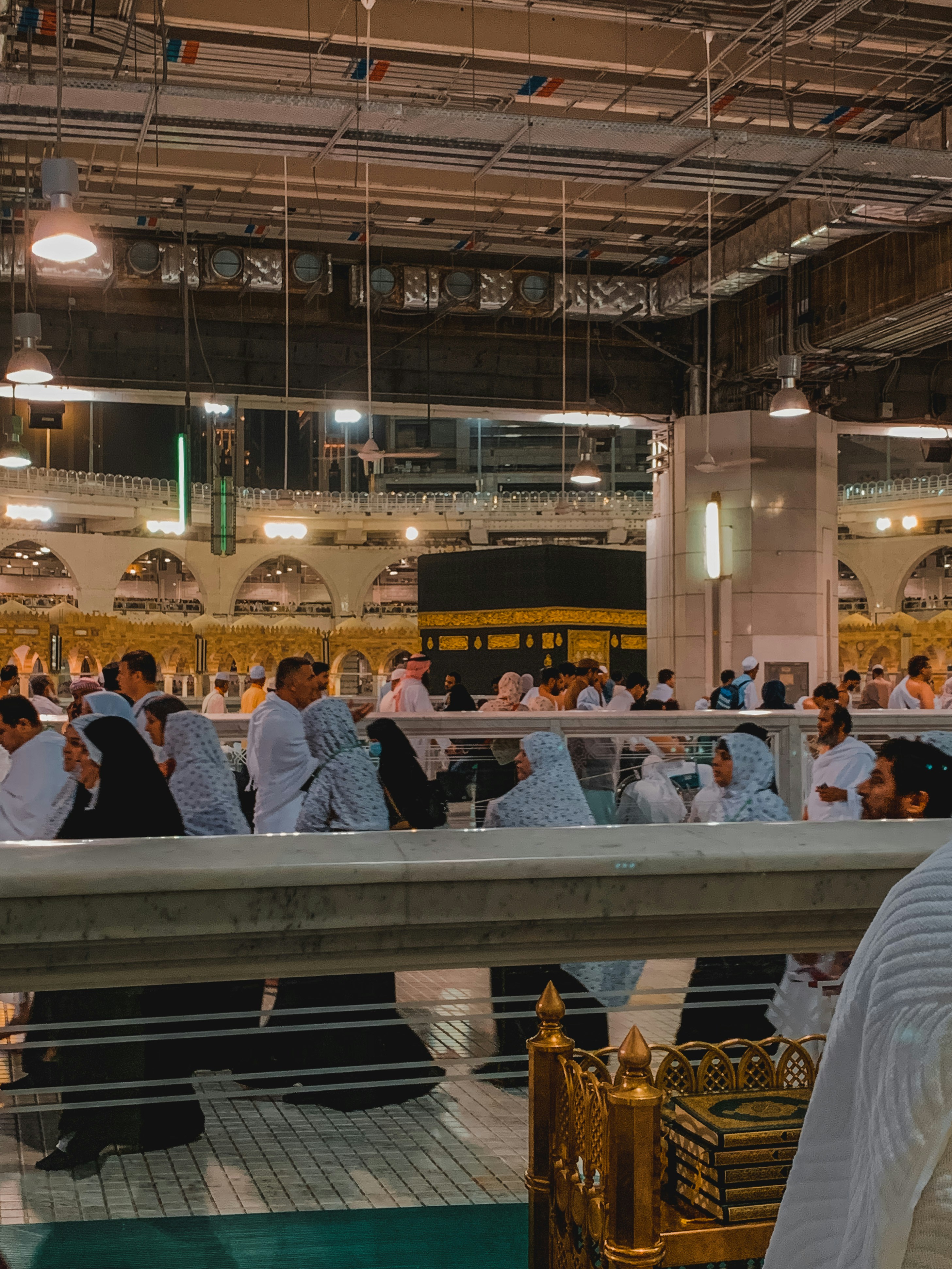Hayley Williams Speaks Out: Paramore’s Frontwoman Critiques the Christian Music Industry Following Michael Tait Allegations

Hayley Williams
Introduction to the Controversy
The recent allegations against Michael Tait, lead vocalist of the acclaimed Christian rock band Newsboys, have ignited a crucial conversation within the Christian music industry. Tait, who has long been a prominent figure in this genre, has faced scrutiny following claims related to inappropriate behavior and ethical misconduct. These allegations not only challenge the integrity of Tait’s career but also shine a light on the accountability structures that govern religious music organizations.
In the midst of this turmoil, Hayley Williams, the frontwoman of Paramore, has stepped forward to share her perspective. Known for her candidness and advocacy for various social issues, Williams has voiced concerns not only about Tait’s actions but also about the overarching culture that often allows such behavior to go unchallenged in the Christian music community. Her statements have sparked discussions about the necessity for transparency and ethical accountability within an industry that is heavily intertwined with faith and values.
This scenario underscores the need for a more robust framework that prioritizes ethical conduct, support for victims, and a commitment to justice, highlighting the importance of holding individuals accountable regardless of their standing or influence within the industry.
Background on Hayley Williams and Paramore
Hayley Williams, born on December 27, 1988, in Meridian, Mississippi, is best known as the lead vocalist of the rock band Paramore. The group was formed in 2004 and quickly gained popularity, propelled by their dynamic sound and Williams’ distinctive voice. Paramore’s self-titled album, released in 2013, marked a significant turning point in their career, showcasing an evolution in their musical style from pop-punk roots to a more diverse sound that includes elements of new wave, synth-pop, and rock. This transformation resonated with both fans and critics, solidifying their status within the music industry.
Throughout her career, Williams has become influential not only within the realm of secular music but also in the Christian music scene. Initially, Paramore was often associated with Christian rock, partly due to their early music themes and the faith backgrounds of some band members. However, Williams herself has expressed nuanced views about her spirituality and how it intersects with her music. While she acknowledges her formative experiences within the Christian community, she has distanced herself from strict categorizations, preferring to focus on universal themes of love, loss, and growth in her work.
Williams’ outspoken nature is often highlighted in her public appearances and interviews, where she addresses various social issues and personal beliefs. Her willingness to discuss topics such as mental health, identity, and the pressures of fame has endeared her to a broad audience and allowed her to cultivate a relatable persona. By openly critiquing elements of the industry, including the Christian music sector, she has demonstrated a commitment to authenticity. As a result, Williams continues to influence both fans and fellow musicians, urging a reevaluation of the norms that characterize various music genres.
The Allegations Against Michael Tait
The allegations against Michael Tait, the frontman of the Christian rock band Newsboys, have sparked considerable discussion and concern within the music community. These allegations surfaced in late 2023, with former associates and individuals from Tait’s past making serious claims regarding inappropriate conduct and unprofessional behavior during their interactions with him. Several public statements attributed to these individuals detail experiences that raise questions about Tait’s character and treatment of others within the industry.
Williams’ Reaction and Critique
Hayley Williams, the frontwoman of the band Paramore, has been vocal about her views on the Christian music industry, particularly in light of recent allegations involving Michael Tait. Her reaction has sparked considerable interest and discussion, particularly among fans and industry insiders alike. Williams articulated her concerns in a manner that reflects both personal beliefs and broader industry critiques. She emphasized the importance of accountability within the Christian music realm, citing instances where the integrity of the genre has been compromised.
In her statements, Williams employed strong language to convey her discontent with the status quo, underlining a disconnect between the values espoused by the industry and the actions of its prominent figures. By addressing the lack of transparency and the potential for hypocrisy within the Christian music sphere, she has urged fellow artists and industry leaders to rethink their priorities. Williams highlighted that when allegations arise against influential figures, it is the duty of the broader community to engage in self-reflection and dialogue. This call for accountability resonates deeply within a genre that often positions itself as a moral compass.
The significance of Williams’ critique cannot be overstated, given her status as a mainstream artist. Her willingness to speak out on such contentious issues brings greater visibility to the complexities of navigating personal beliefs within the music industry. As an artist who has crossed over from the Christian scene to mainstream success, her insights may serve as a catalyst for other musicians to express their own concerns. Williams’ statements not only spotlight the specific allegations against Tait but also provoke a much-needed conversation about the ethical responsibilities of artists in the Christian music industry and beyond.
Impacts on the Christian Music Community
The recent comments made by Hayley Williams regarding the Christian music industry and the allegations against Michael Tait raise significant concerns for the entire community surrounding this genre. The fallout from these allegations is likely to resonate deeply among artists, fans, and industry stakeholders who have been associated with or are invested in the Christian music scene. Williams’ critique highlights a growing unease within the community, particularly among artists who may feel pressured to conform to certain expectations or standards that do not necessarily align with their personal beliefs or artistic expressions.
For artists, this situation may spark a critical reassessment of their involvement in the Christian music industry. Those who prioritize authenticity in their work may begin to question whether they can continue to create within a framework that ostensibly supports a community that might harbor harmful practices or ideologies. This introspection could lead some to distance themselves from traditional Christian labels or platforms, seeking alternative avenues to express their faith and artistry without compromising their core values.
Fans of Christian music are also likely to feel the impact of these allegations as they grapple with their own beliefs and the integrity of the artists they follow. The erosion of trust in prominent figures can lead to disillusionment among supporters, prompting a desire for greater transparency and accountability within the industry. As the audience demands closer scrutiny, it is possible that a rift may develop between loyal fans and the music they have long cherished.
Industry stakeholders, including record labels and promoters, will also have to navigate the shifting dynamics in this landscape. The implications of Williams’ remarks and the Tait allegations could compel them to re-evaluate their partnerships and the ethical guidelines governing their operations. As the Christian music community seeks to redefine its values and objectives, these factors will play a crucial role in shaping the future of the industry.
Reactions from Other Artists and Fans
In the aftermath of Hayley Williams’ outspoken critiques of the Christian music industry and the recent allegations against Michael Tait, a variety of responses have emerged from both fellow artists and fans. The discourse has revealed a tapestry of sentiments ranging from supportive endorsements of Williams to criticisms of the broader industry practices.
Many artists within the Christian music realm have taken to social media to express solidarity with Williams. For instance, a prominent figure in the industry vocalized their appreciation for her bravery, emphasizing the importance of honesty and transparency in music, especially when it is intertwined with faith. This support underlines a desire among some musicians to challenge the status quo regarding how allegations are handled in the Christian community.
Conversely, there have also been criticisms directed at Williams and others who have spoken out. Some detractors argue that such public discussions may harm the integrity of the Christian music sector and suggest that these matters should be dealt with privately. This perspective highlights the tension between the pursuit of accountability and maintaining a protective stance over the industry’s reputation. Critics advocate for a more nuanced approach to discussing these sensitive topics without creating divisions among artists and fans.
Fans, inherently varied in their views, have filled social media platforms with their thoughts. Many fans have rallied behind Williams, applauding her for initiating a conversation that many believe is long overdue. However, others have voiced concerns that such criticisms might alienate those who are deeply invested in the Christian music culture. The spectrum of reactions underscores a critical moment in which the Christian music industry must navigate complex dynamics regarding faith, accountability, and artistic expression.
A History of Controversies in Christian Music
The Christian music industry has faced its share of controversies over the years, revealing deep-rooted challenges regarding accountability and transparency. Notably, incidents involving prominent artists have sparked conversations about the ethical implications of their actions and the broader culture surrounding the industry. One significant case occurred in the early 2000s when several high-profile artists were accused of infidelity and inappropriate behavior, raising questions about the authenticity of their faith-based messages.
In addition, the rise of social media has amplified scrutiny within the Christian music scene. Artists once shielded from public discourse are now subject to widespread commentary and criticism. For instance, allegations against high-profile figures have often exposed a dichotomy between their public personas and private actions. This dissonance has at times led to fan backlash, prompting discussions about moral integrity and the responsibilities of those who lead in spiritual contexts.
Moreover, the tensions surrounding theology and artistic expression have also persisted. Some controversial moments have arisen from artists who blended secular influences with traditional gospel messages. This blending often resulted in backlash from purists who argue that straying from conventional styles dilutes the essential message of Christian music. Conversely, others contend that such fusion is necessary for expanding the reach of the gospel to broader audiences
.
Instances of artists leaving the faith or expressing doubts have also contributed to a tumultuous narrative. These departures not only reflect personal struggles but also ignite debates within the community regarding the expectations placed on Christian artists. The collective experience of these events underscores a continuing narrative of questing for authenticity and the burdens borne by those in the spotlight.
As the industry evolves, it remains crucial for stakeholders to address these ongoing issues while fostering an environment of transparency and accountability. Understanding the historical context of controversies within the Christian music realm provides insight into the current climate faced by artists like Hayley Williams, who vocally critique established norms.
The Role of Social Media in Addressing Allegations
In recent years, social media has emerged as a significant platform for discussing issues of accountability within the music industry. As artists, fans, and advocates utilize platforms like Twitter, Instagram, and Facebook, conversations around sensitive topics such as abuse and misconduct have gained unprecedented visibility. This evolution in communication has facilitated a more immediate and transparent dialogue regarding allegations, enabling a collective voice to be heard in a manner that was previously challenging.
The immediacy of social media allows individuals to share their experiences and opinions with a broad audience, fostering a culture of support and awareness. Recently, the allegations surrounding Michael Tait exemplify how artists like Hayley Williams can mobilize their fanbase, leveraging their platforms to comment on the failings of established norms within the Christian music industry. Through tweets and posts, key figures can expose misconduct, encourage conversations, and highlight systematic issues that may go unnoticed in traditional media channels.
Moreover, the interactive nature of social media empowers fans and allies to engage in discussions, providing a space to ensure that allegations do not fade into obscurity. The hashtags and trending topics surrounding instances of misconduct often serve as rallying points for both support and accountability, leading to the formation of communities that advocate for change. This collective advocacy has proven crucial in demanding transparency from artists and industry leaders, effectively prompting a reevaluation of accountability measures within the music domain.
While social media offers a powerful platform for raising awareness, it is also essential to approach discussions with care. Misinformation can easily propagate in the fast-paced environment of social media, necessitating a commitment to sharing factual information and encouraging critical evaluation of sources. By doing so, the music community can maintain focus on the complexities surrounding allegations and engage in constructive conversations about responsibility and justice.
The Future of Christian Music: Looking Ahead
The Christian music industry is currently at a critical crossroads, shaped by recent allegations and public discourse initiated by prominent figures like Hayley Williams. Her candid critique not only sheds light on the deficiencies within the industry but also paves the way for potential reformation. As musicians, fans, and industry professionals reflect on these circumstances, there is a collective opportunity to foster a healthier musical environment that values authenticity and integrity.
The potential for change lies in the commitment of both artists and fans to advocate for greater transparency and accountability in the Christian music scene. With the influence of social media, fans now have a platform to express their thoughts and concerns, a factor that could drive artists to re-evaluate their engagement with the industry. Artists who prioritize honesty in their work and interactions with their audience can create music that resonates more genuinely with listeners. This shift could inspire a new generation of creators who embody a more responsible and ethical approach to their art.
Furthermore, industry leaders must recognize the growing demand for reform and take actionable steps towards creating a more inclusive and supportive environment for artists. This includes addressing systemic issues and promoting diversity within music labels and organizations. By fostering spaces where emerging artists can thrive without fear of repercussions or judgment, the Christian music industry can cultivate a more vibrant artistic landscape.
As the dialogue around these issues continues to evolve, it is crucial for all stakeholders in the Christian music community to engage in conversations that promote positive change. The future of the industry ultimately hinges on a shared commitment to build a framework that not only honors its roots but also embraces the diversity and complexity of modern faith expressions through music.












Leave a Reply
You must be logged in to post a comment.